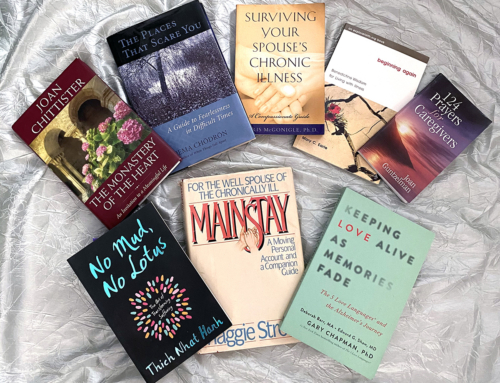“The most important thing in communication is hearing what isn’t said.”
– Peter Drucker
I was not born being a reflective listener. In fact, these days I am able to admit to myself what I never thought I actually was, which was pretty darned self-centered. Sure, this was of extreme handiness in my formative young adult years. Going to art school at Pratt Institute in Brooklyn, New York, further emphasized that we understand who we are as separate from all of the influences that had gotten us to that point.
Self-actualization has always been important to me.
But. I cannot say that with all of this self-awareness and personal growth that it included listening. What I mean is…listening in a deep and supportive way. Hmmm….no….I think I did do this. But reflective listening? This is entirely different.

I was drawn to two national programs in my church, Stephen Ministry and Listening Hearts.
Stephen Ministry taught me how to deeply and reflectively listen. Stephen Ministers are lay congregation members trained to provide one-to-one care to those experiencing a difficult time in life, such as grief, divorce, job loss, chronic or terminal illness, or relocation. I completed the 50-hour requisite training and became certified.
Listening Hearts taught me the process of discernment. In this program, I was the talker. As you can see from my copious notes (all 8 pages front and back sides covered), I had quite a question to answer! Listening Hearts is drawn from scripture and from Quaker and Ignatian traditions, and focuses on the themes of call, discernment, and community as they relate to each other.
The part that was hardest for me to learn in my Stephen Ministry training was that I, the listener, could not ADD anything! Focus only on their words. No inserting of my own stories, supposed wisdom, as in, “oh, yes, I can relate, let me tell you about when I went through this!”
The part that was hardest for me to learn in Listening Hearts was sitting in silence with a group. And waiting until everyone came to a place of consensus that all could embrace…about ME.
The wonderful thing about both of them is this: I have managed to integrate them into some of my closest relationships. We have reciprocal and intentional conversations. And although these practices are grounded in the Christian faith, they are porous. The language can be modified to honor all faith traditions as well as secular and atheist relationships.
When faced with difficult circumstances and emotions, these practices help ground and orient me. Hopefully, I am able to communicate in a non-threatening, non-judging, and supportive way. Often, it is about bearing witness.
In my professional work life I also subtly incorporate these practices. I have found them useful in creating common ground, more patience, and an ability to understanding other.
6 Active Listening Tips
From Stephen Ministry, Christianity 101
1. Stay Present
To stay present means to really be in the moment. You’re not thinking about your grocery list or what you are going to say next. You are totally focused on the speaker and staying quiet. No interruptions.
James 1:19 Let everyone be quick to listen, slow to speak.
2. Stay Curious
When you want to know more, it’s easier to stay present. Ask genuine follow-up questions only when the speaker asks for your input.
3. No Judgment
Keep an open mind and accept that what you hear may be different from your own opinions or values. When you are free of judgment, people will feel safe sharing with you and being vulnerable in front of you.
Psalm 116:1-2
I love the Lord, because he has heard
my voice and my supplications.
Because he inclined his ear to me,
therefore I will call on him as long as I live.
4. Be Empathic
Brené Brown says empathy is a vulnerable choice. Instead of offering a sandwich to someone who is stuck in a hole, offer to get into the hole with them. For more on empathy, watch this message from Dr. Brown.
5. Be Patient
It takes time to process difficult emotions. Do not rush it.
6. Listen For Understanding
Similar to tip number two above, it’s easier to stay present and to be empathic when you understand. Put yourself in the speaker’s shoes, but know that you can never fully appreciate all of their experiences and influences, but you can try. Also, side note: There may be times when you won’t fully understand, and that’s ok. Do your best.
Romans 10:17 So faith comes from what is heard, and what is heard comes through the word of Christ.



